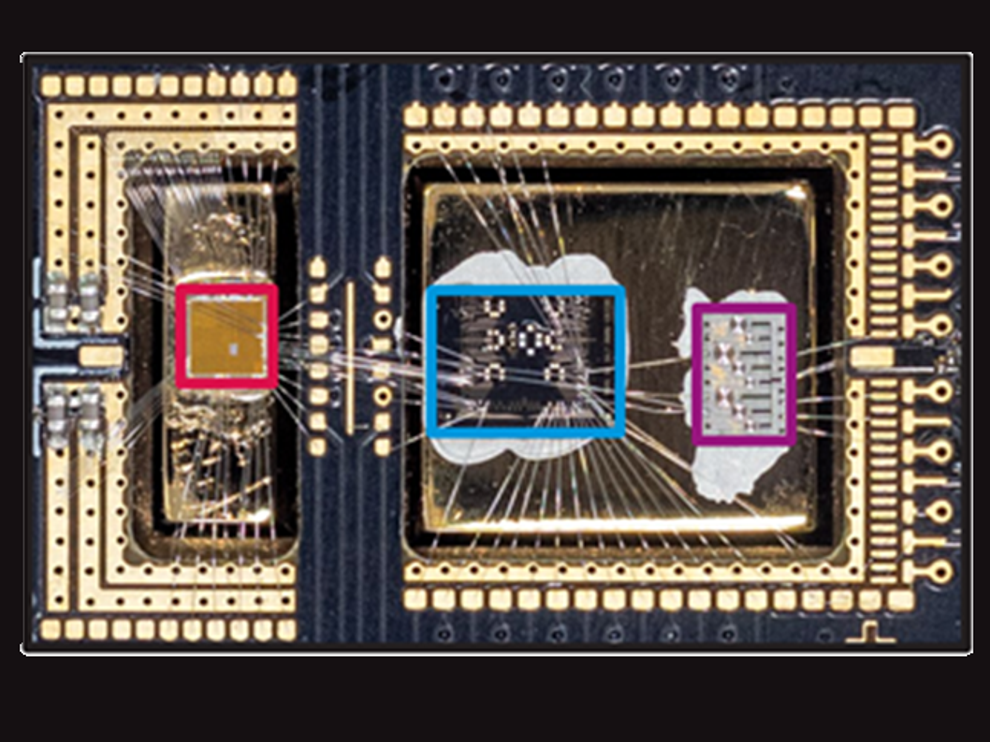"Unleashing the Power of Quantum: Exploring the Boundless Potential of Quantum Computers"
Quantum computers are a special type of computer that use the principles of quantum mechanics to perform calculations. While traditional computers, like the one you may be using right now, use bits to store and process information, quantum computers use something called qubits.
A qubit is a unit of information that can exist not only as a 0 or 1 (like a regular bit), but it can also be in a state called superposition. Superposition means that a qubit can be both 0 and 1 at the same time, allowing quantum computers to process multiple possibilities simultaneously.
This ability to handle multiple possibilities at once gives quantum computers their power. They can solve certain problems much faster than traditional computers, especially when it comes to complex calculations and searching through large amounts of data.
Another important concept in quantum computing is entanglement. Entanglement is a phenomenon where two or more qubits become linked together in such a way that the state of one qubit affects the state of the others, no matter how far apart they are. This allows quantum computers to perform parallel computations and share information between qubits, leading to even more computational advantages.
Quantum computers have the potential to solve problems that are currently difficult or impossible for classical computers. They could help with things like optimizing complex systems, simulating chemical reactions to develop new drugs, or breaking encryption codes.
However, building and operating quantum computers is still a significant challenge due to the delicate nature of qubits. They are very sensitive to interference from the environment, making it difficult to maintain their quantum states for long periods of time. Researchers are working on finding ways to overcome these obstacles and make quantum computers more practical and reliable.
In simple terms, quantum computers are a new kind of computer that use the weird and wonderful properties of quantum mechanics to perform calculations faster and solve complex problems that traditional computers struggle with. While they are still in the early stages of development, they hold great promise for transforming the world of computing in the future.
Certainly! Here are a few more key points about quantum computers in easy language:
1. Speed and Efficiency: Quantum computers have the potential to solve certain problems much faster than traditional computers. For tasks that might take a classical computer millions of years, a quantum computer could potentially solve them in just a few minutes or even seconds.
2. Probability and Guesswork: Quantum computers take advantage of the principles of probability and guesswork. They explore multiple possibilities simultaneously, narrowing down the correct answer through a process called quantum algorithms. It's like trying out different options all at once and quickly finding the right one.
3. Quantum Supremacy: Quantum supremacy is a term used to describe the point at which a quantum computer can perform a task that is practically impossible for a classical computer. Achieving quantum supremacy is an important milestone in the development of quantum computing.
4. Limitations: While quantum computers offer exciting possibilities, they also have limitations. Not all problems can be solved faster with quantum computers. There are specific tasks, such as factorizing large numbers or simulating quantum systems, where quantum computers have a clear advantage.
5. Quantum Error Correction: Qubits are delicate and prone to errors caused by noise and interference. Researchers are actively working on developing quantum error correction techniques to make qubits more stable and reliable, thereby improving the overall performance of quantum computers.
6. Quantum Cryptography: Quantum computers also have implications for cryptography. While they have the potential to break some of the encryption algorithms used today, quantum cryptography offers new ways to secure information by leveraging the principles of quantum mechanics.
7. Quantum Simulations: Quantum computers can simulate complex quantum systems, enabling scientists to better understand the behavior of molecules, materials, and chemical reactions. This could lead to advancements in fields such as drug discovery, materials science, and optimization.
8. Collaborative Efforts: Quantum computing is a rapidly advancing field that requires collaboration between scientists, engineers, and mathematicians from around the world. Research institutions, governments, and technology companies are investing in quantum research to unlock its full potential.
9. Quantum Computing's Future: While quantum computers are still in the early stages of development, they hold tremendous promise for solving complex problems and advancing various fields of science and technology. Continued research and innovation are needed to make quantum computers more accessible, scalable, and practical.
In summary, quantum computers are a new type of superpowered computer that use quantum mechanics to explore multiple possibilities simultaneously, potentially solving problems much faster than traditional computers. While there are challenges to overcome, the future of quantum computing looks promising and could revolutionize various aspects of our lives.






No comments